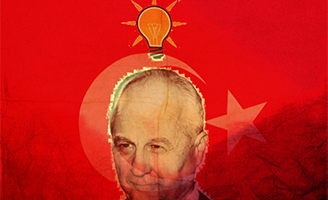What the Columnists Say
Abdülkadir Selvi in Yeni Şafak reports that Turkey is determined to take action in Syria if the PYD expands to the west of the Euphrates, taking control of Jarabulus, but that this does not mean that Turkey is about to go to war. Özgür Mumcu in Cumhuriyet writes that Turkey is dreaming about a military operation that is internally marketed as an operation against PYD, while it is externally marketed as something that supposedly targets ISIS. Orhan Kemal Cengiz in Bugün writes that the question after the election was if Erdoğan was going to interpret the results as a no to the proposed, unlimited powers of the presidency or as a “road accident,” and concludes that it’s now business as usual for the president. Orhan Bursalı in Cumhuriyet writes that it is very difficult for AKP to accept that the party has lost the possibility to form a majority government on its own, and that the party and the “Mighty” – Erdoğan – intends to never relinquish power. Candaş Tolga Işık at the Habere Dikkat news site writes that handing the seat of the speaker of the parliament to AKP as a gift, only because MHP is unable to curb its hatred of HDP, is going to be the undoing of the party.

Coups and Class: Why Turkish Democracy Is Derailed
By Halil Karaveli (vol. 8, no. 10 of the Turkey Analyst)
The Turkish military’s capacity for intervention in politics has been inversely proportional to the ability of the bourgeoisie to establish hegemonic rule. The dynamic that set the stage for all the coups was the fact that the most developed fraction of the Turkish bourgeoisie always needed a helping hand in order to prevail against other fractions and classes. History could have ended with the AKP, as the party secured bourgeois hegemony. Today, however, industrial interests have reason to be much less satisfied with the course that the regime is pursuing. Conjuring the specter of class warfare, President Recep Tayyip Erdoğan claims that “capital is changing hands.” That is a process that is bound to unleash new political convulsions.

What the Columnists Say
Ahmet İnsel in Cumhuriyet writes that the purpose of the attacks that were carried out against the premises of HDP in Adana and Mersin was to provoke HDP supporters and incite them take to the streets. Cengiz Çandar in Radikal writes that Turkey has lost its immunity to Salafism by acting as a sponsor of the Sunni radicals in Syria, in concert with Saudi Arabia. On the occasion of the death of Kenan Evren, the general who took power in the 1980 coup, Fatih Yaşlı in Yurt notes that Evren fathered today’s “New Turkey” by putting the current neoliberal-Islamic regime in place. Mümtazer Türköne in Zaman similarly observes that Evren’s regime, with its oppressive institutions, is still in place. He also notes that Evren was responsible not only for the coup but also for the wave of assassinations and massacres from 1978 onwards that preceded it and was used to legitimize it. İhsan Dağı on the Diken news site writes that if HDP crosses the threshold to parliament in the upcoming general election, it will restore the faith in competitive democracy, by demonstrating that change by normal ways is still possible in Turkey.

Violence Against Politicians in Turkey Raises the Spectre of Destabilization
By Halil M. Karaveli (vol. 3, no. 8 of the Turkey Analyst)
The recent physical attacks on politicians in Turkey raise the specter of destabilization. The Turkish government speculates that the attacks are coordinated by forces within the state security establishment. The incidents obviously occur within a wider context of ideological manipulation. Turkish ultra-nationalism has developed and spread during the last decade. It seems that the punch, rather than the outstretched hand, and irrationality are set to define the future of Turkish-Kurdish relations.





